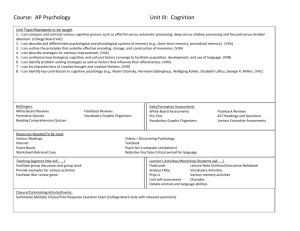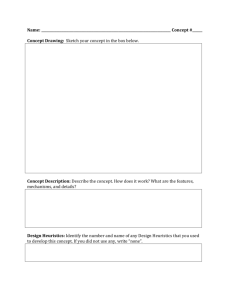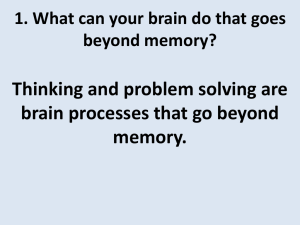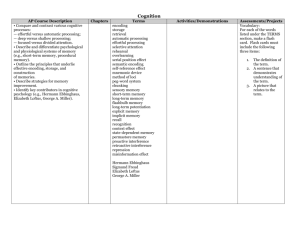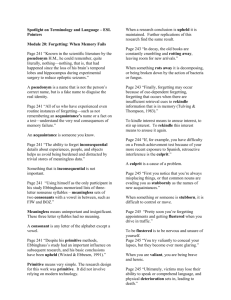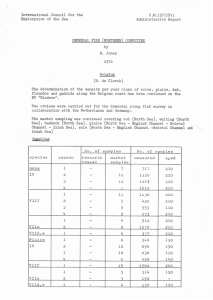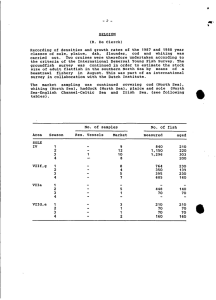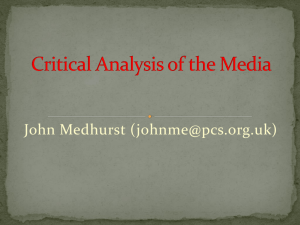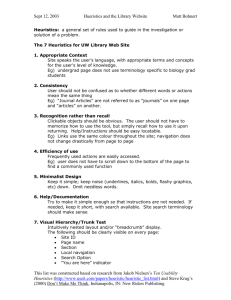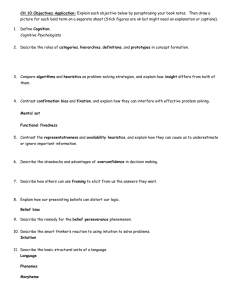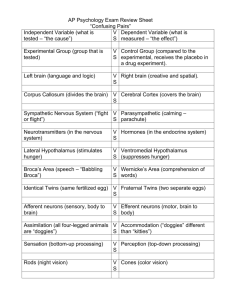Cognition Learning Targets and Vocabulary
advertisement
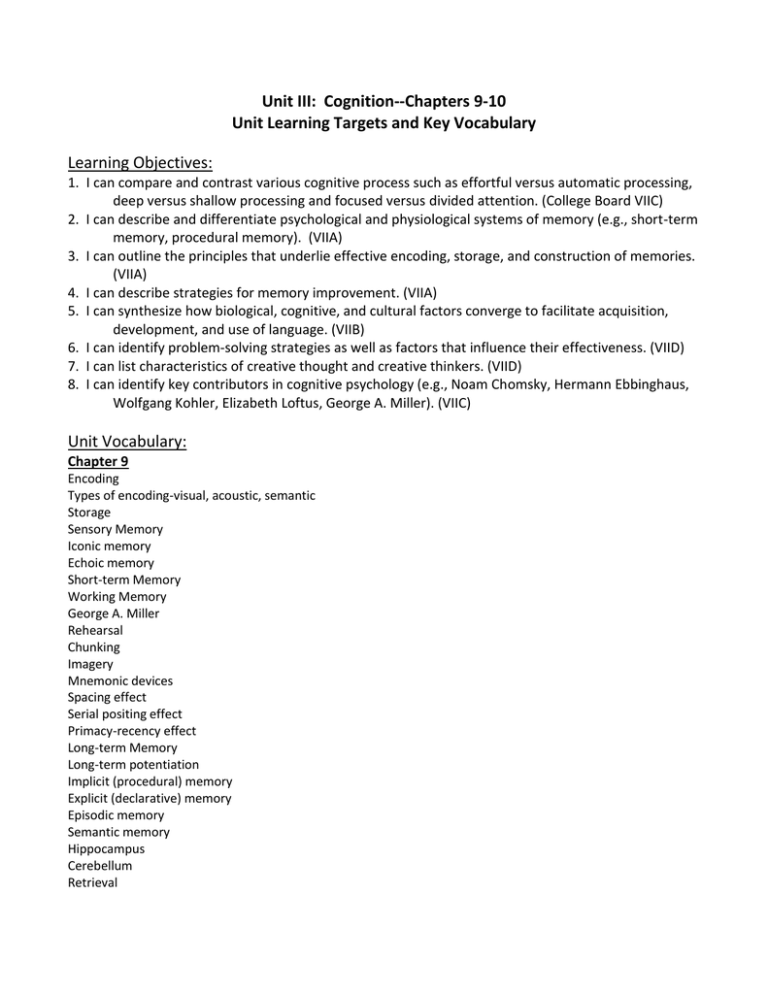
Unit III: Cognition--Chapters 9-10 Unit Learning Targets and Key Vocabulary Learning Objectives: 1. I can compare and contrast various cognitive process such as effortful versus automatic processing, deep versus shallow processing and focused versus divided attention. (College Board VIIC) 2. I can describe and differentiate psychological and physiological systems of memory (e.g., short-term memory, procedural memory). (VIIA) 3. I can outline the principles that underlie effective encoding, storage, and construction of memories. (VIIA) 4. I can describe strategies for memory improvement. (VIIA) 5. I can synthesize how biological, cognitive, and cultural factors converge to facilitate acquisition, development, and use of language. (VIIB) 6. I can identify problem-solving strategies as well as factors that influence their effectiveness. (VIID) 7. I can list characteristics of creative thought and creative thinkers. (VIID) 8. I can identify key contributors in cognitive psychology (e.g., Noam Chomsky, Hermann Ebbinghaus, Wolfgang Kohler, Elizabeth Loftus, George A. Miller). (VIIC) Unit Vocabulary: Chapter 9 Encoding Types of encoding-visual, acoustic, semantic Storage Sensory Memory Iconic memory Echoic memory Short-term Memory Working Memory George A. Miller Rehearsal Chunking Imagery Mnemonic devices Spacing effect Serial positing effect Primacy-recency effect Long-term Memory Long-term potentiation Implicit (procedural) memory Explicit (declarative) memory Episodic memory Semantic memory Hippocampus Cerebellum Retrieval Recall Recognition Priming Déjà vu Mood-congruent Forgetting Ebbinghaus’ forgetting curve Proactive interference Retroactive interference Repression Amnesia Source amnesia Misinformation effect Confabulation Elizabeth Loftus Improving memory Chapter 10 Cognition Directed Thinking Nondirected Thinking Metacognition Concept Prototype Algorithm Heuristics Confirmation bias Fixation Mental set Functional fixedness Creativity Recombination Insight Representative heuristics Availability heuristics Framing Belief bias Phonemes Morpheme Grammar Semantics Syntax Telegraphic speech B.F. Skinner Noam Chomsky Linguistic determinism
